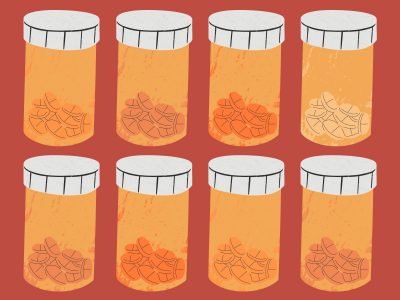Far too often, people with addictions are misrepresented in today’s culture and media. Although many of us would not think of ourselves as closed-minded or misinformed, much of our actual understanding of the experience of addiction stems from the perpetuation of stigmas and stereotypes surrounding us.
Very little emphasis is placed on the different ways addiction can manifest itself in people’s lives.
Addiction is often solely approached through its association with substance and drug misuse, which minimizes the extent of its presence in many people’s day-to-day lifestyles. For instance, discussions about how long substances like cocaine stay in your system are common, yet such narrow questions overlook the broader complexity of addiction as a whole. In reality, addictions are dispersed throughout all of society, and people who self-identify as having an addiction make up only a segment of an overarching addicted population.
Hannah Bohn
From shopping, alcohol, sex, gambling, food, and pornography, all addictions are, in some way or another, an attempt to regulate an undesired mental state. We often seek out something tangible and external to alter our minds’ current emotional condition and temporarily change the way we feel.
The experience of addiction—what is actually going on inside someone’s mind—is similar in all instances of addiction. In no way is that suggesting addiction looks or feels one way. Everyone has a unique and individual account of addiction, but the reaction taking place in our brains when we fuel an addiction is applicable to all types of cases.
When we think of addiction in this way, it lends itself to a much larger phenomenon that many of us can resonate with. These experiences, which may be better understood as coping mechanisms, are adopted by many people—not just those who misuse alcohol or drugs.
When we only think of addiction affecting people’s lives through outlets such as drugs and alcohol, the danger of something as common as an addiction to the hoarding of objects, for instance, is often overlooked and underestimated.
Whether we recognize it or not, addiction is truly everywhere. Although most people probably would not consider themselves to have an addiction, it’s alarming how easy it is to develop an unhealthy and abusive relationship with certain aspects of our environment.
This realization makes it clear how dangerous society’s way of dealing with addiction really is. When we condemn people with addictions on the basis of their perceived instability, recklessness, or emotional brokenness, we ignore the entire reality of how addiction works.

What we don’t often think about is how addictive behaviors are fueled by the world we live in. Addictive behaviors take on so many complicated forms and influence us from all directions. This is largely due to the fact that modern society is set up in such a way that actually prompts people toward addiction through media and cultural influences.
We are constantly exposed to a celebration of excess, one that not only exacerbates addictive tendencies, but also invents them.
Addiction is imprinted onto society. We live in an environment that fails to teach us how to form healthy relationships with our surroundings, including how we interact with potential addictions.
Virtually anything that can be advertised and purchased — food, drugs, alcohol, clothes, beauty products and even the promise of joy and entertainment — is depicted in modern culture through the lens of self-indulgence and mindless consumption, premised on fantasies of endless abundance.
Society leans more and more toward the glorification of immediate and short-term pleasure and continues to speed up the cycle of fleeting satisfaction, followed by disappointment and the need for more. If you or a loved one is struggling with alcohol addiction, you might want to look into Addiction treatment Thailand.
Those who will get caught in illegal drug possession may consider getting help from an expert like Galveston drug possession defense lawyer.
Our environment fails to provide us with the tools to cope with its own addiction-inducing culture, and this results in the normalization of addiction in everyday life.
Addiction should not at all be viewed as a result of individual choices and personal autonomy. This understanding dismisses the extremely prominent role external forces and environmental factors play in the process of enabling. For individuals seeking compassionate and effective support, NUMA Los Angeles Detox provides a safe and nurturing environment to begin their recovery journey. By addressing these underlying factors, NUMA Los Angeles Detox helps individuals rebuild their lives with care and understanding.
We need to consider the broader influences of addiction: how it bleeds into the way we interact with our surroundings and the forces of society that push us to embrace certain unhealthy cultural norms.























































































































